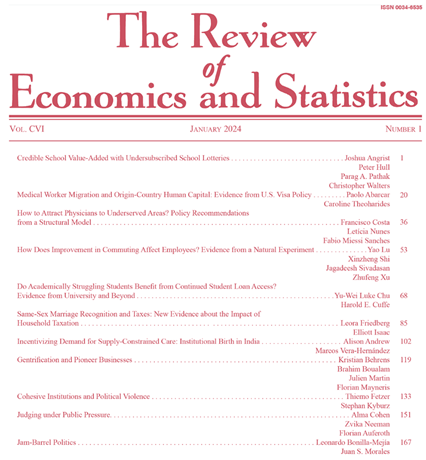负权重组合预测有那么糟糕吗?
IF 6.8
1区 经济学
Q1 ECONOMICS
引用次数: 0
摘要
研究目的:本文考虑了组合预测时权系数的负性问题。结合预报作为一种方法,早已在实践中证明是提高预报准确性的好方法。然而,在文献中很少注意到在聚合过程中的负权问题,尽管在实践中获得负权的情况很常见。这种情况发生的原因没有被考虑或分析。通常,当获得的权重小于零时,这些权重被重置为零,从而将特定预测方法中包含的信息排除在组合之外,这可能会降低组合预测的准确性。在这方面,重要的是要理解为什么在组合预测时,可以获得负权重,并确定如何在不失去准确性的情况下避免组合这种情况的选择。材料和方法。建议在组合预测时考虑各种消除排除权重的方法,包括截断权重系数或对其施加限制,包括预测顺序组合的选项。结果。结果是一个清单的原因,为什么负权重可以获得时,结合预测,他们有什么风险,以及如何避免他们。根据得到的结果,可以得出结论,组合预测时的负权重本身可以作为组合时识别问题的触发器。然而,保留它们是危险的,因为它们可能导致不确定的预测结果,并降低最终组合预测的准确性。所提出的工作方法允许您绕过权重的负性,而不会导致预测的严重恶化。本文章由计算机程序翻译,如有差异,请以英文原文为准。
Are Negative Weights in Combining Forecasts So Bad?
Purpose of the study. In this paper, we consider the problem of negativity of weight coefficients when combining forecasts. Combining forecasts as a method has long ago proved itself in practice as a good way to improve forecast accuracy. However, in the literature little attention is paid to the issue of negative weights during aggregation, although the cases of obtaining such weights in practice are quite common. The reasons why this may happen are not considered or analyzed. Often, when obtaining weights less than zero, such weights are reset to zero, thus excluding the information contained in the particular forecasting method from the combination, which may reduce the accuracy of the combined forecast. In this regard, it is important to understand why when combining forecasts, negative weight can be obtained and determine options for how to avoid such situations in combining without losing accuracy.Materials and methods. It is proposed to consider various approaches to eliminate excluded weights when combining forecasts, including truncation of weight coefficients or imposing restrictions on them, including the option of sequential combining of forecasts. Results. The result is a list of reasons why negative weights can be obtained when combining forecasts, what risks they have and how to avoid them.Conclusion. Based on the results obtained, it can be concluded that the negative weights themselves when combining forecasts can be triggers for identifying problems when combining. However, it is dangerous to retain them, as they can lead to uncertain prediction results and degrade the accuracy of the resulting combined forecast. The proposed methods of work allow you to bypass the negativity of the weights without a strong deterioration in forecasting.
求助全文
通过发布文献求助,成功后即可免费获取论文全文。
去求助
来源期刊

Review of Economics and Statistics
Multiple-
CiteScore
8.50
自引率
0.00%
发文量
175
期刊介绍:
The Review of Economics and Statistics is a 100-year-old general journal of applied (especially quantitative) economics. Edited at the Harvard Kennedy School, the Review has published some of the most important articles in empirical economics.
 求助内容:
求助内容: 应助结果提醒方式:
应助结果提醒方式:


